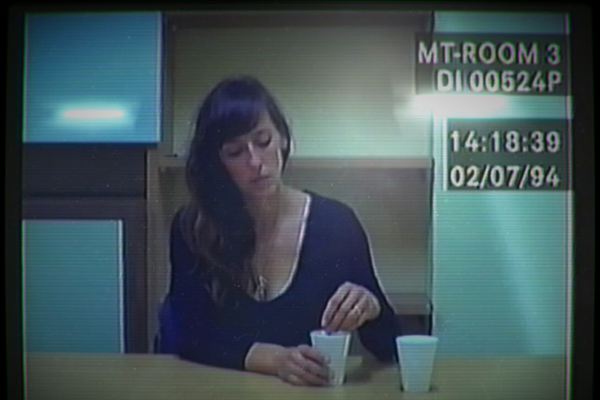Rating: A
It’s almost traditional that Full Motion Video (FMV) adventure games are utter shit. Their cutscenes were very poorly implemented, they contained no writing or acting of any merit, and they were unpleasant to play in every aspect. Fortunately, modern game developers only use an FMV style in their games when they definitely know what they are doing, and Sam Barlowe’s Her Story is an exceptional example of this.
The last game Sam Barlowe was known for was a text adventure game called Aisle. That was a curiously perplexing game about a man standing in a supermarket, and in which you could only enter one command before the game would end. Her Story bears the same kind of experimentalism, as the story is very deliberately told out of any chronological order. You play a person sitting at a computer in a police investigation department, going through multiple clips of interviews with the same woman. The catch is that you can only watch clips that are about 30 seconds long: to watch more, you have to search through the database by keyword.
The effect of this is that you will end up playing the game with a pad of paper and pen at the ready. I haven’t had to do that since I played the Myst games at primary school—and incidentally, those too were surprisingly fantastic FMV adventure games. Throughout the clips, you will be on the lookout for any word that even remotely seems like it could crop up again later on—and almost every word you take note of will produce a couple more clips. The game gives you about three hours of footage to trawl through in total, of which I only discovered about 80 percent. The main puzzle of the game is a metafictional one, with you trying to piece together in your head what point in time each interview came from, and how the mental state of the woman progressed over the course of her time with the police.
The fragmented video clips ensure that few answers are laid out by the time you finish, but it’s precisely because the game is so obscure that it is so compelling. You’ll have a more thought-provoking time with it than most movies you’ll watch this year.







